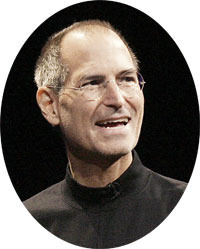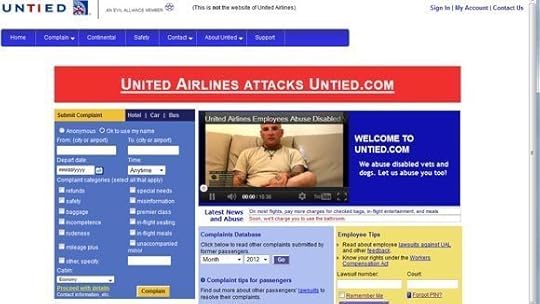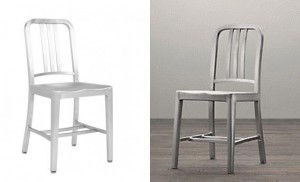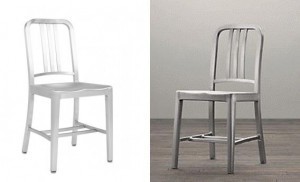Christopher Sprigman's Blog, page 3
December 5, 2012
The Knockoff Economy at Google
Kal gives a talk on The Knockoff Economy at Google’s L.A. offices.
December 4, 2012
The Korea Times
美, ‘캘리포니아 평결 뒤집어야’
* 애플은 태초부터 모방꾼
* 특허분쟁은 법정에서 이기는 경쟁력 있는 도구
* 애플, `애플 세금’ 노려
The English-language Korea Times recently interviewed both of us regarding the 2nd biggest Korean news story of the year (after Psy): Apple vs. Samsung. Here’s a short excerpt from Chris’ interview:
Did Jobs steal?
This is the first in a series of articles ahead of the Dec. 6 hearing on the Samsung-Apple patent legal battle to be presided over by U.S. Federal Judge Lucy Koh. ― ED. By Kim Yoo-chul

Christopher J. Sprigman
Apple started as a ferocious copycat but now it is an industrial leader, it calls everyone else imitators in order to maintain its position, according to a U.S. patent expert.
“Apple is now blasting Samsung as a copycat. But from its beginning, Apple was an active copier itself,’’ said Christopher Jon Sprigman, a professor at the University of Virginia School of Law. The interview was conducted by email.

“In a 1994 interview, the late Apple founder invoked Picasso’s alleged dictum that `good artists copy, great artists steal,’” Sprigman said, also quoting the late Steve Jobs who said, “We have always been shameless about stealing great ideas.”
U.S. Federal Judge Lucy Koh will rule on a jury verdict ordering Samsung to pay $1.05 billion in damages for violating Apple patents in a Dec. 6 hearing.
The judge may alter the sum or, as Samsung hopes, order a new trial over jury foreman Velvin Hogan’s alleged misconduct.
Sprigman continued: “On a visit in 1979 to the Xerox research center in Palo Alto, California, the late Jobs became fascinated with a Xerox prototype computer that used a mouse and screen icons. Jobs took ideas he’d seen at Xerox, refined them and made them central features of the Macintosh. The freedom to copy built Apple and gave us the great products we enjoy today.’’
December 3, 2012
Campus Streaming
 UCLA (where Kal teaches) has been for some time involved in litigation over whether streaming video for classroom use violates copyright law. Last week a district court in California dismissed the suit for the second time. As the Daily Bruin reports:
UCLA (where Kal teaches) has been for some time involved in litigation over whether streaming video for classroom use violates copyright law. Last week a district court in California dismissed the suit for the second time. As the Daily Bruin reports:
Ambrose Video Publishing, Inc., an educational video producer, and Association for Information Media and Equipment, a trade association, filed the suit last year alleging that UCLA violated copyright laws by streaming reformatted DVD content and an Ambrose Video Publishing program on the Internet for students and faculty.
United States District Judge Consuelo B. Marshall originally dismissed the case in October 2011, but allowed the company and trade organization the option of filing an amended complaint, which was filed months later.
Judge Marshall dismissed the case for a second time last week, but this time the decision does not allow the case to be refiled in the trial court, said Jamie Slaughter, an attorney who defended UCLA in the case. The companies, however, do have the option to appeal, he added.
“We’re pleased that (the judge) agreed with us and agreed with UCLA that there was no copyright infringement or breach of a contract with respect to the facts in this case,” Slaughter said.
Judge Marshall dismissed the case, citing that Ambrose Video Publishing lacked standing to bring the case, and UCLA had immunity, according to the judge’s ruling.
While this is good news for UCLA and generally the right result, it leaves open the question of what kinds of streaming are permissible. As a UCLA official noted,
“What we were hoping for was some decision related to whether or not our digitizing of the media is fair use,” said Roger Brown, manager of instructional media collection and services for UCLA. “Instead it got thrown out on technicalities.”
Brown expressed some disappointment with the ruling.
“We’ve maintained, if you’ve looked at the original response to their suit, that the fact that we’re digitizing this media is fair use because we have a classroom exemption,” Brown said.
“We were hoping that the judgment would address that specifically so that we would feel more comfortable doing what we are doing.”
U.S. Patent Office invalidates Apple “bounce back” scrolling patent
 News that the U.S. Patent Office has invalidated Apple’s patent on “bounce back” scrolling — the feature that gives a user a “rubber band” effect when she scrolls to the bottom of a screen display. The PTO has decided that the patent is both non-novel and obvious based on the existence of a prior patent that discloses a very similar feature.
News that the U.S. Patent Office has invalidated Apple’s patent on “bounce back” scrolling — the feature that gives a user a “rubber band” effect when she scrolls to the bottom of a screen display. The PTO has decided that the patent is both non-novel and obvious based on the existence of a prior patent that discloses a very similar feature.
The Apple “bounce back” patent was one of the patents that the jury in federal court in San Jose ruled Samsung had infringed. But considering that the PTO has deemed that patent worthless, what should the San Jose court do now? Apple will likely appeal the PTO’s determination, so in a sense the validity of the bounce back patent is still up for grabs. But should a damage award based in part on a patent that is of no current effect stand? Or should the court vacate the damage award and order a new trial on the question of damages?
Stay tuned.
November 29, 2012
United Airlines uses IP law in bid to squelch “Untied.com” complaint site
 News today that United Airlines has filed a lawsuit pressing copyright and trademark claims against “Untied.com”, a United Airlines complaint site run by a Canadian engineering professor named Jeremy Cooperstock. Reports suggest that United got annoyed when Cooperstock re-designed the 15-year-old site to more closely resemble United’s own website (see screen shot, above), using colors and logos that look a lot like United’s. Cooperstock admits that his site looks similar to United’s, but he says that’s necessary because it is a parody and so must reference the real thing. Additionally, Cooperstock insists that nobody would think his gripe site is the real United Airlines site — especially after he recently included a pop-up window asking visitors to acknowledge that they get that it’s not the real airline’s site.
News today that United Airlines has filed a lawsuit pressing copyright and trademark claims against “Untied.com”, a United Airlines complaint site run by a Canadian engineering professor named Jeremy Cooperstock. Reports suggest that United got annoyed when Cooperstock re-designed the 15-year-old site to more closely resemble United’s own website (see screen shot, above), using colors and logos that look a lot like United’s. Cooperstock admits that his site looks similar to United’s, but he says that’s necessary because it is a parody and so must reference the real thing. Additionally, Cooperstock insists that nobody would think his gripe site is the real United Airlines site — especially after he recently included a pop-up window asking visitors to acknowledge that they get that it’s not the real airline’s site.
If Cooperstock’s site is indeed a parody of United’s, then he has wide latitude under both copyright and trademark and liability is unlikely. But it’s impossible to tell definitively because Coopersmith’s internet hosting provider has taken down Untied.com, apparently in response to a request from United. This despite United’s claims that is has no intent to have Cooperstock’s complaint site taken down.
Hmmmmm.
UPDATE: Prof. Cooperstock writes to say that Untied.com is back up. (We checked – it is.) The site is a hoot and worth a visit.
November 28, 2012
Google disrupts the newspaper business, and now the newspapers strike back
 We have a piece up at The Huffington Post weighing in on the latest fight between newspapers and Google — now the newspapers want Google to pay for linking to them in search results. Um, bad idea. We explain why.
We have a piece up at The Huffington Post weighing in on the latest fight between newspapers and Google — now the newspapers want Google to pay for linking to them in search results. Um, bad idea. We explain why.
November 26, 2012
Navy chair maker essentially admits its design is “just a generic chair”
 Emeco, the maker of the Navy Chair (pictured left), has sued Restoration Hardware for its knockoff (pictured right). We have a piece in Slate today arguing that Emeco’s claim falls flat. The reason, basically, is that Emeco’s chair isn’t distinctive, and thus its design cannot be protected by trademark. Rather, Emeco’s chair is pretty much just a chair. A fact that Emeco’s products chief as much admits in the video below. Choice quotes from Magnus Breitling, Emeco’s Director of Product Management:
Emeco, the maker of the Navy Chair (pictured left), has sued Restoration Hardware for its knockoff (pictured right). We have a piece in Slate today arguing that Emeco’s claim falls flat. The reason, basically, is that Emeco’s chair isn’t distinctive, and thus its design cannot be protected by trademark. Rather, Emeco’s chair is pretty much just a chair. A fact that Emeco’s products chief as much admits in the video below. Choice quotes from Magnus Breitling, Emeco’s Director of Product Management:
“Ask a kid to draw a chair – she would probably take the [Navy] chair – ‘cause it’s just a classic chair. It doesn’t have a cupholder. It doesn’t play your applications. It’s just a chair.”
“[Navy Chair designer Wilton Dinges] basically took a generic wood chair, took the design over, and made it in aluminum.”
Yup.
Can Restoration Hardware knock off the Navy Chair?
November 25, 2012
New study shows shutdown of filesharing site helped blockbusters, but hurt smaller flicks
 A new study by European researchers suggests that the shutdown by the U.S. Department of Justice last January of giant filesharing site Megaupload had complicated effects on the movie industry.
A new study by European researchers suggests that the shutdown by the U.S. Department of Justice last January of giant filesharing site Megaupload had complicated effects on the movie industry.
The study finds that Megaupload’s disappearance benefited blockbuster movies — fewer people downloading the biggest films illegally meant more tickets sold at the box office. But the picture for all of the other, non-blockbuster, films was more complex. Megaupload’s shutdown appears to have actually decreased box office revenues for a wider category of non-blockbuster films.
The researchers speculate that less popular films may have suffered from Megaupload’s disappearance because fewer illegal downloads meant less word of mouth promoting good but lesser-known films. Put another way, there are lots of people who don’t engage in illegal downloading, but who hear about less popular films from those who do. Cut off the illegal downloads, and you cut off a potentially significant source of promotion. Which means that it’s possible — although it is important to understand that this study does not offer definitive proof — that illegal downloading is, on net, a benefit for at least those (many) films that don’t enjoy the sort of marketing budget that Hollywood devotes to Transformers 3.
So, what does this all mean? It’s another example of how the effects of illegal copying are much more subtle than we are willing to acknowledge. Some movies are hurt by illegal filesharing. Other movies benefit. That may not change your views on the ethics of filesharing. But it does raise the question why the United States government is spending what will eventually likely amount to tens of millions of taxpayer dollars to prosecute Megaupload impresario Kim Dotcom. If this study has the picture right and filesharing does not appear to impose big social harms, should filesharing be an area of criminal prosecution by the U.S. government? Or should it be left to Hollywood to sort out through civil lawsuits?
November 24, 2012
Poutine: Canadian, American, and otherwise
 We’re very interested in creative cuisine — a world in which we find high levels of innovation without much intellectual property. Recipes are, for reasons we explain here, not covered by copyright. And chefs engage in a lot of copying and “tweaking” of other chefs’ dishes. Which helps to make this a world of wonderful food. Here’s an example that one of us (Sprigman) enjoyed a couple of weeks ago at a restaurant called “The Glass Haus Kitchen” in Charlottesville, Virginia. Poutine (pictured above) is a famous (and famously unhealthy) dish from Quebec. In its traditional form, it’s made with french fries covered in veal gravy and topped liberally with cheese curds. Sounds disgusting, but take my word for it — it’s one of the world’s great late-night foods. And something I didn’t believe could be improved.
We’re very interested in creative cuisine — a world in which we find high levels of innovation without much intellectual property. Recipes are, for reasons we explain here, not covered by copyright. And chefs engage in a lot of copying and “tweaking” of other chefs’ dishes. Which helps to make this a world of wonderful food. Here’s an example that one of us (Sprigman) enjoyed a couple of weeks ago at a restaurant called “The Glass Haus Kitchen” in Charlottesville, Virginia. Poutine (pictured above) is a famous (and famously unhealthy) dish from Quebec. In its traditional form, it’s made with french fries covered in veal gravy and topped liberally with cheese curds. Sounds disgusting, but take my word for it — it’s one of the world’s great late-night foods. And something I didn’t believe could be improved.
 Until I had the “American Poutine” at the Glass Haus. The chef, Ian Boden, has taken the Montreal standard to a new level. In place of french fries, he uses crispy fried potato slices. And instead of cheese curds, Boden uses cubes of halloumi soaked in harissa. The dish is topped with shredded lamb and a rich lamb gravy.
Until I had the “American Poutine” at the Glass Haus. The chef, Ian Boden, has taken the Montreal standard to a new level. In place of french fries, he uses crispy fried potato slices. And instead of cheese curds, Boden uses cubes of halloumi soaked in harissa. The dish is topped with shredded lamb and a rich lamb gravy.
Boden’s American Poutine is recognizably poutine. But upscaled.
We’ll be eating more of it.




